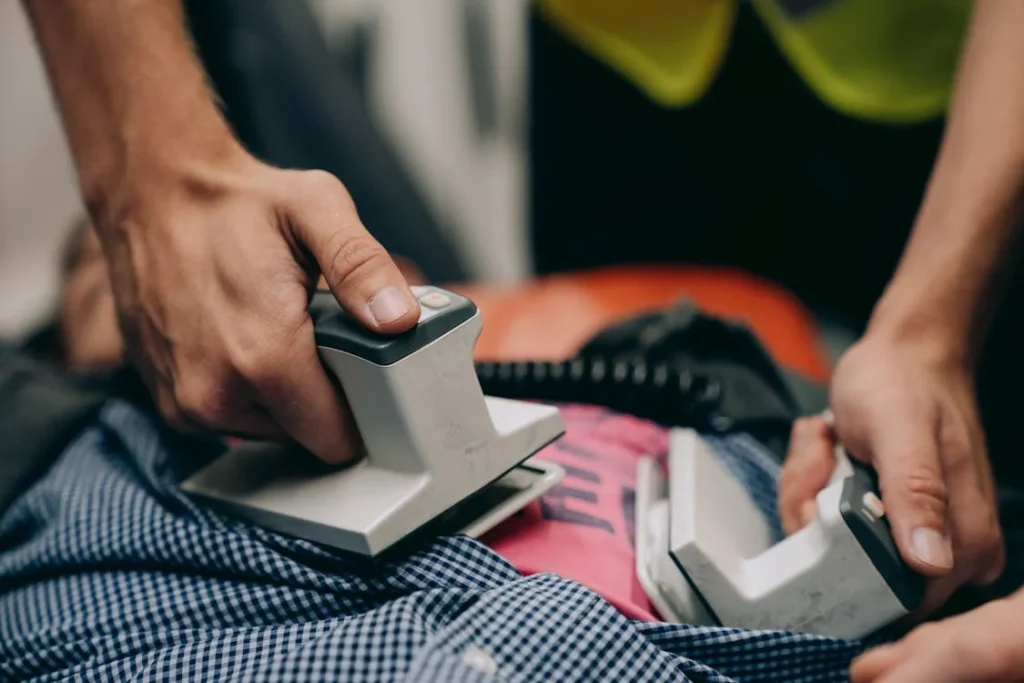Smartwatches are increasingly popular for tracking fitness and health, but people with an implantable cardioverter defibrillator (ICD) or pacemaker need to be cautious about using these devices. Due to specific functions in some smartwatches, there can be a risk of interference with cardiac devices. Here’s what you need to know to make an informed choice.
1. Potential Risks of Wearing Smartwatches with an ICD
Smartwatches that utilize bioimpedance technology can interfere with pacemakers and defibrillators. Bioimpedance is a technique where the device sends a small electrical current into the body to measure metrics like body fat percentage and hydration levels. However, this current can potentially interfere with ICDs and pacemakers, affecting their ability to monitor and manage the heart’s rhythm.
According to recent studies, devices using this technology could theoretically cause two main issues:
- Pacemaker inhibition: The smartwatch could prevent the pacemaker from properly pacing the heart.
- Unnecessary shocks: Some smartwatches could potentially trigger an ICD to deliver shocks when they are not needed, which can be painful and disruptive for the wearer.
The American Heart Association and researchers from institutions like the University of Utah have suggested that individuals with ICDs should avoid smartwatches using bioimpedance technology for these reasons.
2. Identifying Safe Smartwatch Models
Not all smartwatches have the potential for interference. Models without bioimpedance functionality are generally considered safer for those with ICDs. Here’s a quick guide to features to watch out for:
| Feature | Risk Level | Explanation |
|---|---|---|
| Bioimpedance technology | ⚠️ High | May interfere with ICDs and pacemakers. |
| Basic tracking (steps, calories, GPS) | ✅ Low | Generally safe, as they do not emit electrical currents. |
| Magnetic chargers | ⚠️ Medium | Could interfere if placed close to the ICD/pacemaker. |
Some manufacturers provide information about which technologies are used in their devices, so it’s recommended to check the product specifications or contact customer support if in doubt.
3. Safety Tips for Using a Smartwatch with a Defibrillator
If you decide to use a smartwatch, here are a few tips to minimize risks:
- Avoid placing the smartwatch directly over the chest where the ICD is implanted.
- Maintain distance from the charging unit while it is plugged in, as the magnetic field from charging cables may cause interference.
- Choose a smartwatch without bioimpedance technology. Stick to models focusing on simpler functions like step counting and GPS tracking.
4. Current Research and Recommendations
A 2023 study published in Heart Rhythm confirmed that bioimpedance-based smartwatches could disrupt ICDs and pacemakers. British Heart Foundation experts, including Professor James Leiper, highlighted that while most smartwatches do not use bioimpedance technology, it’s crucial for patients with cardiac devices to be aware of those that do. The U.S. FDA also acknowledges the potential interference of these devices, though additional research is necessary to refine the guidelines further.
5. Consulting Your Cardiologist
Before purchasing or using a smartwatch, consult with your cardiologist. They can offer personalized advice based on the type and model of your ICD, and provide guidance on which devices are safe for you.
Smartwatch Interference Safety Rating for ICD Patients
| Smartwatch Feature | Safety Rating | Notes |
|---|---|---|
| Step Counting | ✅ Safe | No electrical currents involved. |
| GPS Tracking | ✅ Safe | Relies on satellites, minimal interference. |
| Heart Rate Monitoring | ✅ Safe | Optical-based, doesn’t affect ICDs. |
| Bioimpedance Analysis | ⚠️ Caution | Should be avoided due to electrical signals. |
| Magnetic Charging | ⚠️ Caution | Avoid keeping near ICD while charging. |
Final Thoughts
While wearing a smartwatch with an ICD can be safe in many cases, it’s crucial to select a model without bioimpedance technology. Staying informed and consulting healthcare providers will help you enjoy wearable technology safely.
References
- American Heart Association. “Bioimpedance and Cardiac Devices,” Heart Rhythm, March 2023.
- British Heart Foundation, “Do smartwatches stop pacemakers and ICDs from working properly?” British Heart Foundation


